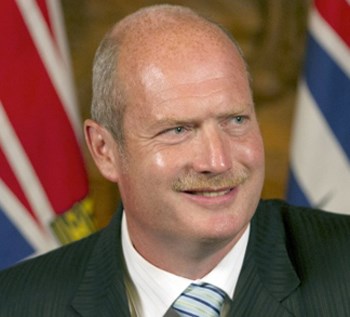 Two months ago, the provincial “housing priority initiatives fund” was announced as part of the bill rushed through a quick summer sitting of the legislature to get the foreign-buyers tax in place. The tax was expected to bring in big bucks, and the government needed a place to put it. The fund was kicked off with an initial investment of $75 million.
Two months ago, the provincial “housing priority initiatives fund” was announced as part of the bill rushed through a quick summer sitting of the legislature to get the foreign-buyers tax in place. The tax was expected to bring in big bucks, and the government needed a place to put it. The fund was kicked off with an initial investment of $75 million.
Another $500 million was poured into it Monday. The gap between those two amounts represents how much more invested the B.C. Liberals have become in housing initiatives over a short period of time. It also represents how much they underestimated the various problems in the market, and how disinclined they were to do much about them until it became a pressing political problem.
The scant details about exactly where all this money is going also give a clue about how quickly the overall response has been put together.
Why are they announcing $500 million in spending with no details about where it’s all going? Because they don’t know themselves yet. The one thing that’s clear is that it’s all going to be spent as soon as possible. “All projects will be identified and approved by March 2017.”
Monday’s news was almost entirely announced by Finance Minister Mike de Jong last week. He said a half-billion in extra revenue was going into housing. Premier Christy Clark didn’t do much more during a few minutes in front of the cameras than simply confirm that.
But you can count on dozens of housing announcements and re-announcements for the next six months as the details take shape, because the government recognizes the housing imperative as a problem that needs urgent attention.
An earlier initiative was cited to bulk up the number even higher. Housing Minister Rich Coleman announced in February that $355 million was going to create 2,000 additional new units of affordable housing. It was billed as the largest single social and affordable housing investment in B.C. history.
But it’s debatable whether it’s new money that’s going to create new units. The funding is generated from a non-profit asset-transfer program that started in 2014. That program simply involves transferring ownership of social housing now held by the provincial government to various non-profit societies. The market value of the properties is being cited as a contribution, but it looks to be just a transfer of ownership, not new money.
Nonetheless, the $355 million was billed as the biggest housing spend in B.C. history, and the total $855 million is now hailed as the biggest provincial housing spend in Canadian history. A new federal housing strategy is in the works, and B.C. will be relying heavily on whatever help is offered.
One of the few details about the plan is that the government plans to buy some units outright from developers and then rent them to people in need of affordable housing.
Said Coleman: “The purchase of existing units from the private market helps provide an immediate housing solution while the construction of new housing will ensure that developments are predesigned to meet the specific needs of individuals and families.”
During more than a decade as housing minister, Coleman has consistently preferred rent subsidies and other measures to the government building and operating new stock. He has said the government would have to borrow billions to fund the thousands of units needed, and the permitting and building would take years.
Overall, it could be good news for renters. You can’t spend a half-billion on affordable housing without some good coming out of it. But whether it will produce the 2,900 new rental units claimed will take well past the election to find out.
It’s still just a promise to spend the half-billion at this point.
It’s the latest in a cascade of housing moves announced to make up the ground lost while they minimized the real estate crisis.
Since February the government has imposed a luxury tax on $2-million-and-up properties, snatched self-government away from the real-estate industry because of shortcomings, granted Vancouver authority for a vacancy tax and slammed a 15 per cent tax on foreigners buying there.



